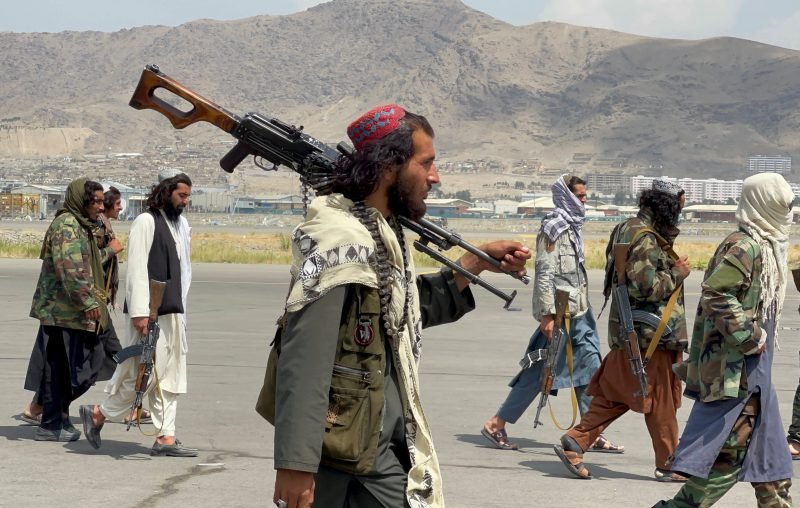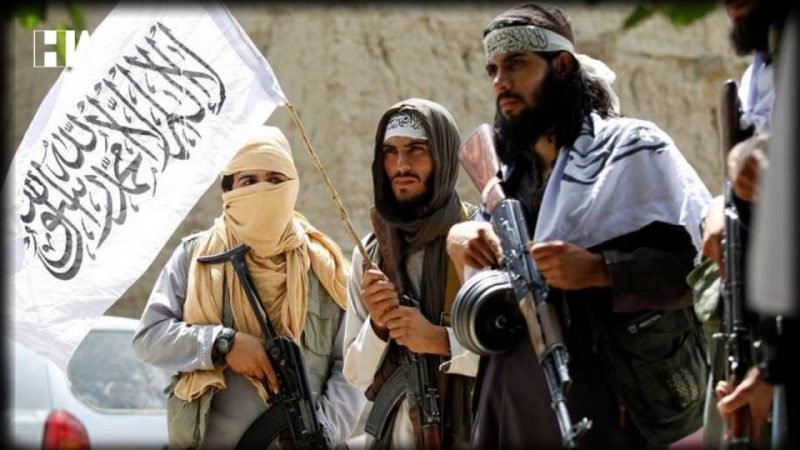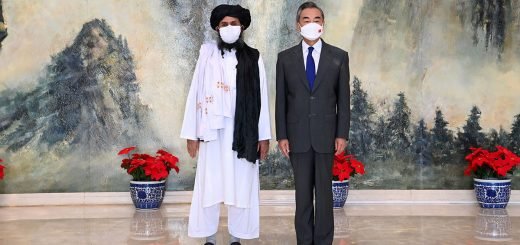The evolving developments in Afghanistan-Pakistan could seriously affect the geopolitical implications and has New Delhi’s concerns too

In the latest development in the Talibanized Afghanistan, Pakistan has once again through its hostile reaction has attempted to emerge as a roadblock in the Kabul peace process. Pakistan National Security Adviser Moeed Yusuf on Tuesday said he would not travel to India for an upcoming conference on Afghanistan on November 10 stating India as a ‘spoiler’ and dismissing India’s role as a ‘peacemaker’ in the worn-torn nation.
It was surprising to see such kind of a refusal to attend a conference on Afghanistan as earlier Pakistan’s Foreign Office confirmed the invitation from India but said the decision would be taken at an appropriate time.
The regional conference on Afghanistan would be hosted by Indian NSA Ajit Doval and will include chiefs of security establishment from Russia, Tajikistan, Kyrgyzstan, and Kazakhstan. The Chinese government has not yet confirmed their presence citing strict quarantine regulations there. In case of physical absence, New Delhi would pursue a videoconference appearance for the Chinese which indicates New Delhi’s efforts to bring peace to the region.
The rivalry between India-Pakistan is not a new one but since the rise of Taliban 2.0, this hostility has rather increased because of the geopolitical implications that could seriously disturb the whole of South and West Asia after the surprising takeover of power by the Pashtun militant group, the Taliban on August 15.
The rejection of Pakistan’s NSA to participate in a conference organized by New Delhi indicates that the rivalry between the two nuclear power states is likely to increase with China siding with Islamabad making this rivalry tenser.

Apart from this rivalry, a chaotic environment has been prevailing in Pakistan for the past few months as the reports of the tussle between PM Imran Khan and the Military establishment making headlines for a couple of weeks now. For PM Imran Khan, the road for peace and prosperity seems arduous as the appointment of new ISI Chief Nadeem Anjum replacing Faiz Hameed has raised new apprehensions in the military establishment that the PM and former ISI chief Hameed were likely viewing each other as guarantors of their respective ambitions with Hameed to become chief with the PM help and latter to win another round of state elections in 2023 with the help of Hameed. But the political history of Pakistan teaches us that it is the military who is always at the helm of all major affairs and that is what happened in this military-civil government relation with the former emerging as the sole winner, which was as expected.
Apart from this, there are a series of developments which has rather weakened the Pakistani State. The recent development with Pakistan’s government reaching an agreement with the outlawed far-right Tehreek-e-Labbaik Pakistan (TLP) party, putting an end to two-week protests indicates the same. While the details of this agreement have not been public, but with this row, the outlawed TLP has once again forced the Pakistani State onto the backfoot and simultaneously it has enhanced its own political clout.
To add more to this, the Punjab government in Pakistan has released more than 800 workers of the banned TLP. In a statement, Special Assistant to the Chief Minister Punjab for Information Hassan Khawar said more than 1,800 people had been taken into custody under MPO, of whom 860 had been released. He added that the remaining marchers would be released soon as well as reported by the Dawn.
Earlier, Pakistan’s national security adviser, Moeed Yusuf, via tweet said “TLP has crossed the red line and exhausted the state’s patience. They have martyred policemen, destroyed public property, and continue to cause massive public disruption”. He added that the “law will take its course for each one of them and terrorists will be treated like terrorists with no leniency” but all that statements and bravado lasted only for a couple of days as on Sunday, Pakistan bought peace with the TLP.
The TLP came to the limelight in 2015 and again in 2018 when it eliminated the Nawaz Sharif government in the 2018 elections and now it is attacking Imran Khan’s government which manifests the relevance of religious extremism in Pakistan’s daily life affairs. The politico-religious row over TLP demanding the suspension of French ambassadors over French President Emmanuel Macron defending caricatures of the Prophet Muhammad as freedom of expression after Samuel Paty, a French school teacher who had shown cartoons of Prophet Muhammad in a class was beheaded by a young Islamic zealot in 2020 where Macron condemned the Islamists and defended the secular principles of French society. Since then, the TLP who since his genesis has been supporting Blasphemy law which calls for the death penalty for anyone who insults Islam is now continuously raising its demand to expel the French ambassadors from Pakistan. But that is unlikely to happen as France is a major economic donor to Islamabad and also a Permanent Member of the UNSC.

Pakistan’s policy to support extremist religious doctrines in their homeland and even abroad in lieu of the foreign policy reiterates Pakistan’s position which meddles between religious extremism in the homeland and abroad. While Pakistan even if it wants to recognize the Taliban’s interim government, cannot do this, but since August 15 it has been calling to the world leaders to help and aid the Afghans who are facing an extreme humanitarian crisis and is pushing their agenda where the world would recognize the Taliban. But it is unlikely to happen in a shorter span of time given the Taliban’s history, its relations with Pakistan and its religious adherence which promotes violence and persecutions of minorities, non-believers and women.
For New Delhi, it is an extreme situation as it faces hostility from both Pakistan-China nexus at a time when these two neighbouring states enjoy a very cordial relations and their strong opposition to India. The coming conference which would be hosted by New Delhi is a major step to discuss the prevailing situations in Kabul and to bring about solutions to this fiasco especially with the neighbouring states. For New Delhi, the rise in attacks in Kashmir since August 15 is being observed as a direct outcome of structural apparatus change in Kabul after the fall of the Ashraf Ghani government and the rise of the Taliban after the withdrawal of US-NATO forces form the worn-torn nation. Along with this, China’s hostile military standoff in Eastern Ladakh, Uttrakhand and Arunachal Pradesh add up more to this Pakistan-Chia nexus and now is the time for New Delhi to tighten its belt by diplomacy and discussions.


















